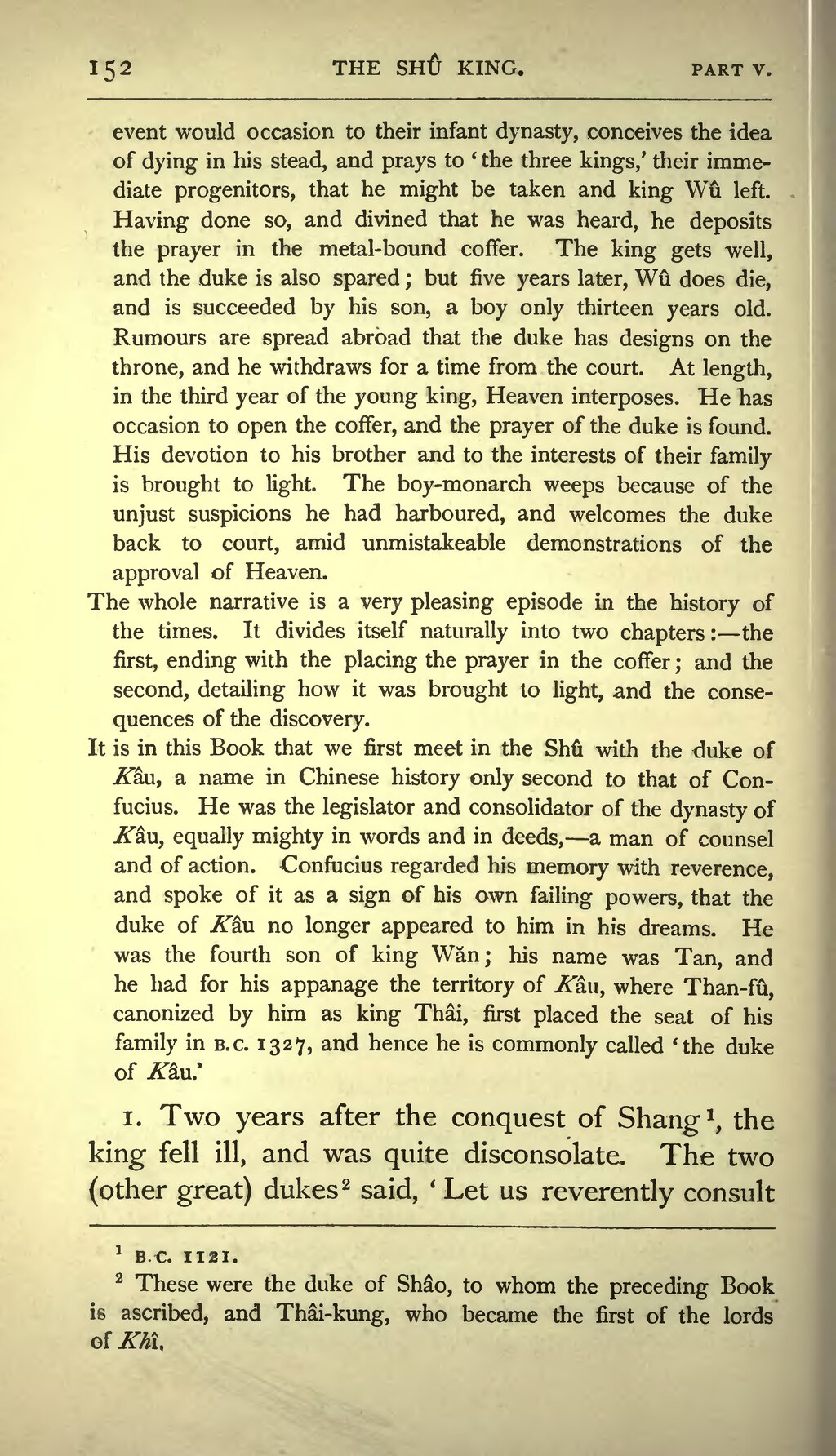event would occasion to their infant dynasty, conceives the idea of dying in his stead, and prays to 'the three kings,' their immediate progenitors, that he might be taken and king Wû left. Having done so, and divined that he was heard, he deposits the prayer in the metal-bound coffer. The king gets well, and the duke is also spared; but five years later, Wû does die, and is succeeded by his son, a boy only thirteen years old. Rumours are spread abroad that the duke has designs on the throne, and he withdraws for a time from the court. At length, in the third year of the young king, Heaven interposes. He has occasion to open the coffer, and the prayer of the duke is found. His devotion to his brother and to the interests of their family is brought to light. The boy-monarch weeps because of the unjust suspicions he had harboured, and welcomes the duke back to court, amid unmistakeable demonstrations of the approval of Heaven.
The whole narrative is a very pleasing episode in the history of the times. It divides itself naturally into two chapters:—the first, ending with the placing the prayer in the coffer; and the second, detailing how it was brought to light, and the consequences of the discovery.
It is in this Book that we first meet in the Shû with the duke of Kâu, a name in Chinese history only second to that of Confucius. He was the legislator and consolidator of the dynasty of Kâu, equally mighty in words and in deeds,—a man of counsel and of action. Confucius regarded his memory with reverence, and spoke of it as a sign of his own failing powers, that the duke of Kâu no longer appeared to him in his dreams. He was the fourth son of king Wăn; his name was Tan, and he had for his appanage the territory of Kâu, where Than-fû, canonized by him as king Thâi, first placed the seat of his family in B.C. 1327, and hence he is commonly called 'the duke of Kâu.'
1. Two years after the conquest of Shang[1], the king fell ill, and was quite disconsolate. The two (other great) dukes[2] said, 'Let us reverently consult
- ↑ B.C. 1121.
- ↑ These were the duke of Shâo, to whom the preceding Book is ascribed, and Thâi-kung, who became the first of the lords of Khî.
